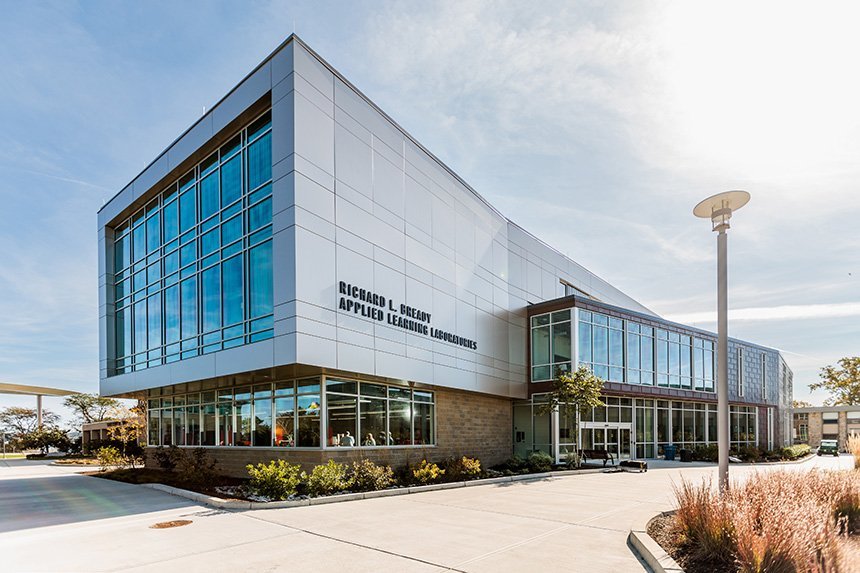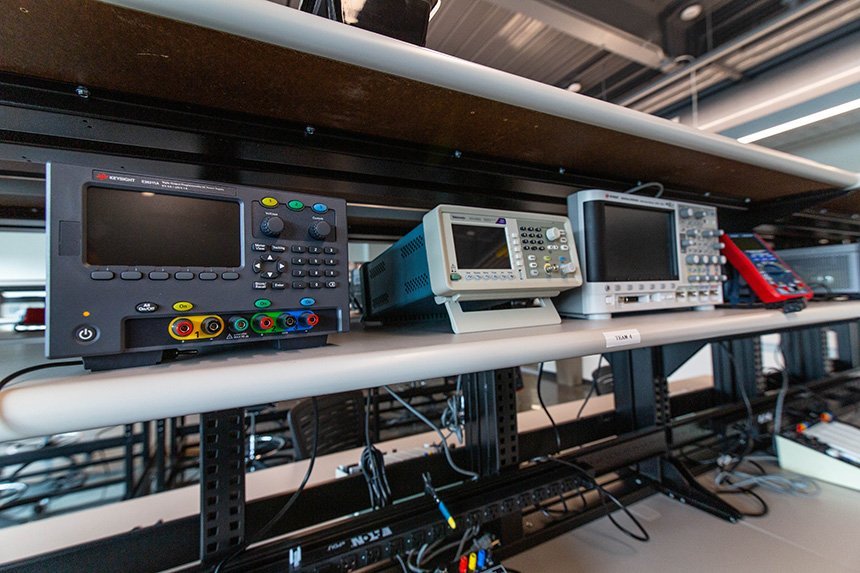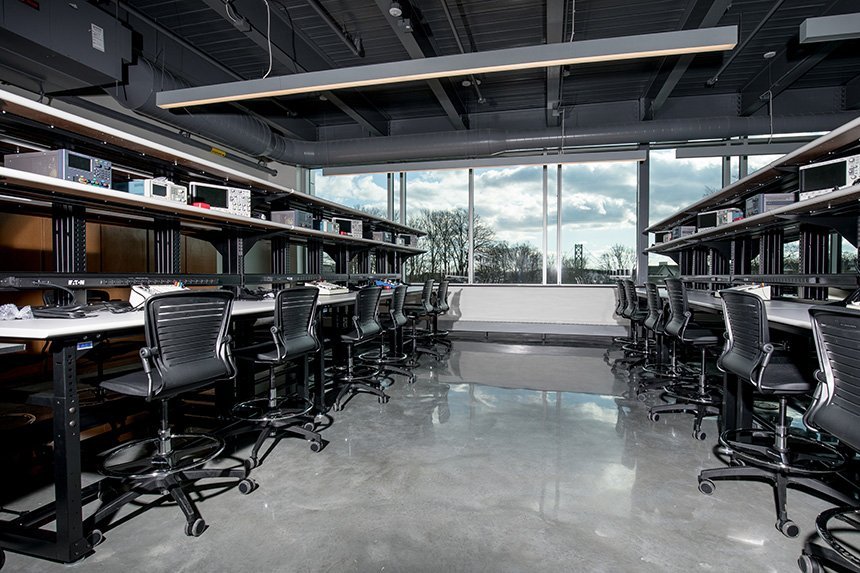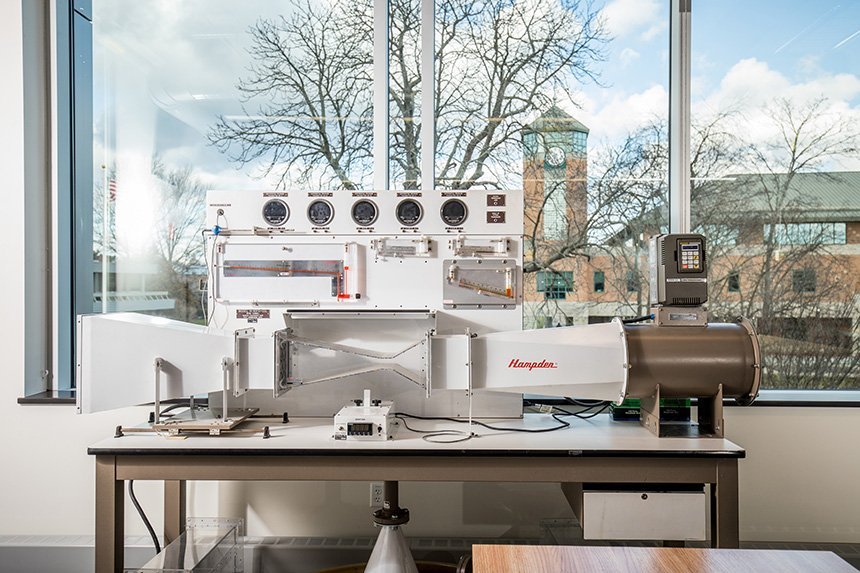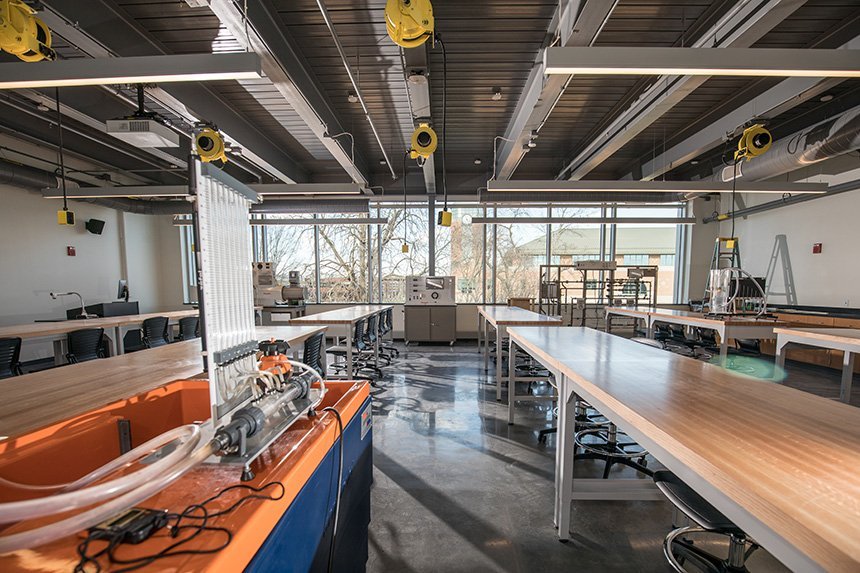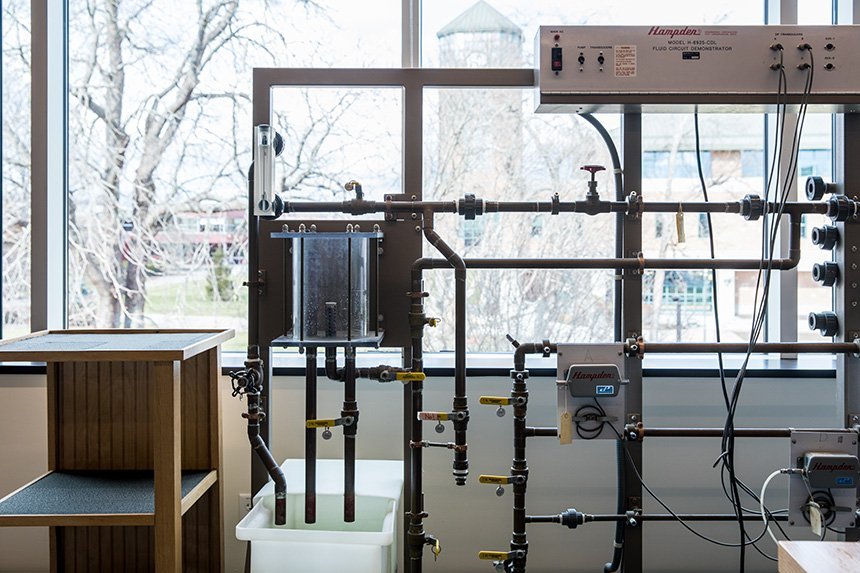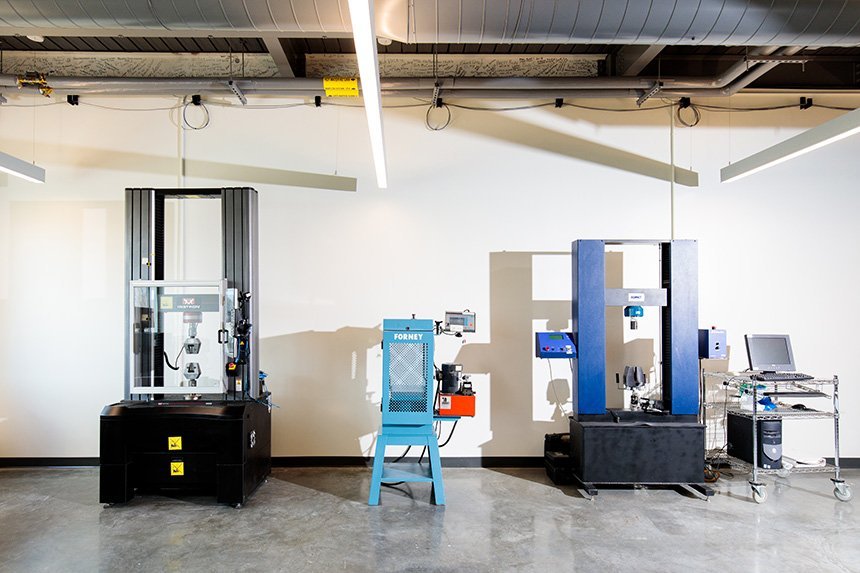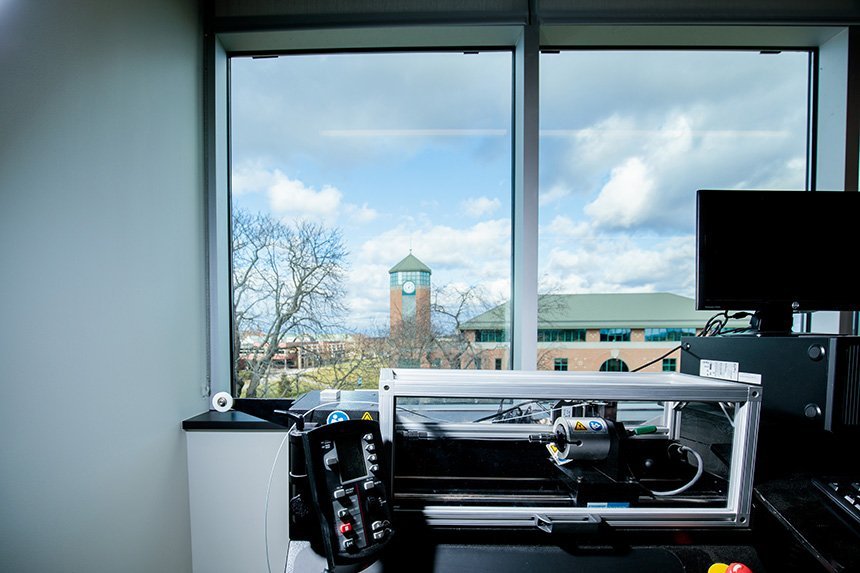Environmental Engineering
The Environmental Engineering specialization at Roger Williams University prepares students for career success. Environmental engineers work on solutions to water and air pollution, design water supply and wastewater treatment systems, and study the effects that acid rain, global warming, and automobile emission have on our everyday lives.
The Environmental Engineering Specialization is part of our Engineering Program, which is accredited by the Engineering Accreditation Commission of ABET under the General Criteria.
Engineering Program Educational Objectives
Three to five years after graduation, we expect our graduates to:
- Possess an inquisitive mind, demonstrate excellence in technical knowledge and skills, achieve success as a practicing engineer or graduate student, and apply the highest ethical standards in all pursuits.
- Value the concept of, and demonstrate through practice, activities and actions that contribute to continual intellectual growth.
- Advance the engineering profession by becoming actively involved in professional associations and societies, serving in professional and community volunteer positions, acting as a role model for the future generation of engineers, and assisting the SECCM Engineering Program in achieving its mission and goals
Degree Requirements
Train for the Future of Engineering
Our program is unique: by providing a broad Engineering education, students are well-versed in a variety of areas, allowing them to work with engineers from all backgrounds and fields. This is the future of the Engineering industry.
Learn more from Dean Robert Griffin:
Senior Design Project
The Senior Design Project is a fundamental element of senior year. Much like the cross-discipline work that will be in their future careers, the design of our students’ senior projects integrates math, science, computer science, and engineering principles into a comprehensive, client-based engineering design project. Student teams work with faculty advisors to design and fabricate solutions to open-ended problems and present their projects at professional conferences and competitions.
Engineering State-of-the-Art Facilities
The newest building on the Bristol campus, the Richard L. Bready Applied Learning Laboratories is designed to foster collaboration and innovation while offering high-tech resources for experiential learning. The three-floor, 27,325-square-foot building features seven cutting-edge laboratories, senior design project rooms and open spaces dedicated to hands-on education.
Receive Professional Recognition
Our students are encouraged and supported to take the Fundamentals of Engineering exam and become an Engineer In Training (EIT), a professional designation from the National Council of Examiners for Engineering and Surveying (NCEES) and a key step toward licensure as a Professional Engineer.
Learn from Faculty Experts
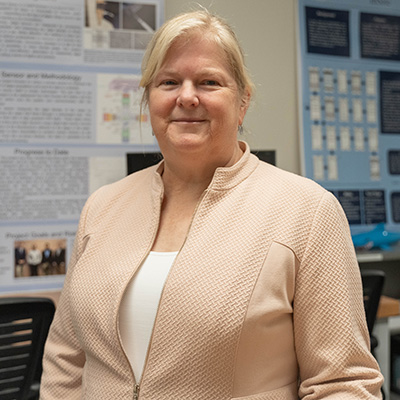 Janet Baldwin, Ph.D., P.E.
Janet Baldwin, Ph.D., P.E.
Professor of Engineering
Janet Baldwin has more than 30 years’ experience in environmental and civil engineering. She has applied her skills to solving water-related problems in Rhode Island as well as internationally. These projects include stormwater and drinking water projects in Bristol, R.I., as well as in Brazil, the Dominican Republic, and Ecuador, and have all been completed with student collaboration. Through these projects, students have traveled internationally as well as within the U.S., and many have won awards at professional conferences. Dr. Baldwin’s love of water extends to her teaching as well as to making full use of the waterfront kayaking on campus.
“I love the location of the Roger Williams campus. Being right on the water gives us a huge laboratory right in our backyard,” she said. “We take field trips walking around campus to take samples and test the water quality. It’s great to learn by actually applying the concepts learned in class.”
Alumni Share Their Experiences
"All my Engineering professors were attentive, supportive, and genuinely cared about whether we were learning the material. Dr. Maija Benitz has always been an inspiration for me as a woman in Engineering. She really cares about her students and is very approachable and accessible. She gave me the push and encouragement I needed to pursue my Ph.D."
Hannah Darling '22
Major: Environmental Engineering
Ph.D. candidate in UMass Amherst's Mechanical Engineering program
Ways to Get Involved
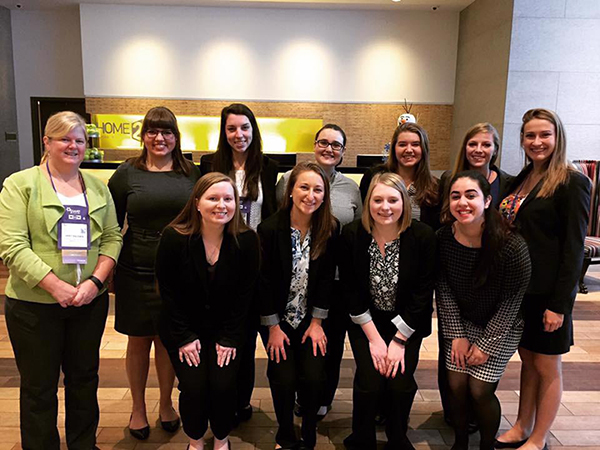 Society of Women Engineers
Society of Women Engineers
RWU's chapter of the Society of Women Engineers provides opportunities for women students to build community and connect with faculty mentors and industry professionals to advance women in engineering. Students travel to the Society of Women Engineers Conference, making industry connections that lead to success after graduation.
Each year, SWE brings scores of fourth-grade girls to campus for a hands-on engineering lesson that helps them earn a Girl Scouts badge.
- In Fall 2020, women students accounted for 49% of all students in STEM majors, which includes the sciences, math, engineering, and computer science
- 41% of tenured and tenure-track Natural Science, Computer Science, Engineering, and Mathematics professors are women, ahead of the national average of 36%
Engineers Without Borders
RWU's Engineers Without Borders chapter focuses on community based projects by providing an engineering solution. Throughout the school year, students and faculty collaborate to plan, design, and prototype for upcoming projects. They also take part in various local engineering projects. In recent years, EWB has traveled with The Foundation of the International Medical Relief of Children (FIMRC); their first trip was in 2016 to Dajabon, Dominican Republic.
Multicultural STEM Alliance
The Multicultural STEM Alliance aims to strengthen the sense of community among students of color in STEM majors at RWU by offering activities, mentorship, and networking opportunities at and outside of the university.


